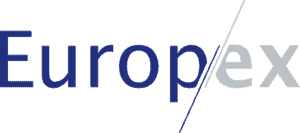Brussels, 10 July 2017 | In reaction to a stakeholder workshop that the European Commission organised recently in the context of the “Quo vadis EU gas market?” study, Europex provides its feedback on the methodology and other aspects of the preliminary report.
The main comments on the direction of the preliminary report are as follows:
Europex considers that the current regulatory focus should be on ensuring a level playing field for all market actors and the consistent and comprehensive implementation and application of the 3rd Energy Package and the Network Codes throughout all Member States. There are still major deviations between Member States and the full and effective implementation across the EU-28, the EEA and the Energy Community is not yet foreseeable. Any study that only assumes the results of such full and effective implementation will remain a best guess, and will fall short of any precise evaluation. As the study may affect the design of future legislation, it should have been kicked-off only once concrete data becomes available and not before. If the built-in optionality of the 3rd Energy Package exacerbates certain inefficiencies, tailor-made solutions should be put forward rather than addressing those inefficiencies by overhauling the entire EU gas wholesale market framework.
In any case, we believe that stakeholders´ concerns regarding capacity contracts and capacity pricing should be directly and clearly addressed at face value. To this end, the situation should be assessed, taking into consideration the interest of all affected stakeholders, to find viable solutions for the gas industry, which also safeguard the interests of end-consumers. Therefore, it is worth exploring the possibility of opening up the study to address this topic in a separate chapter. As voiced in the last workshop, any evaluation of the regulatory framework conditions that combines the capacity issues with more general and far reaching market design topics could potentially create a lengthy dialogue that introduces further uncertainty and leads the discussion on to topics that are now premature, given the actual state of regulatory implementation.
Europex emphasises that the success of the North-West European gas hubs and the significant pick-up of liquidity in central Europe is current evidence that in Member States where the regulatory framework is vigorously implemented, the gas markets are working well and are already delivering tangible benefits for the end consumers. Therefore, we do not see a need for additional regulation on the EU gas market, because the market will itself ultimately define liquid pan-European trading areas where such stable and level conditions are consistently applied. Any fine-tuning that could be required given local differences should be done on a local level in line with network codes. Furthermore, under the current framework, market mergers are already possible in a “bottom-up” approach and do not need new regulation.
Currently, the internal market for gas is working well, as is recognised by the study and stakeholders. Therefore, additional regulatory intervention should be kept to a minimum. The modelling approach in Phase 2 of the study could help to provide and increased understanding of interdependencies of variables, but also has its limitations: it is difficult to define a metric that comprises both the results of a simplified model and factors like liquidity development and other trends.
For more details, please see the full position paper below.
Attachments
-
 20170710_Europex-feedback-to-quo-vadis-study-phase-1
20170710_Europex-feedback-to-quo-vadis-study-phase-1
File size: 133 KB

